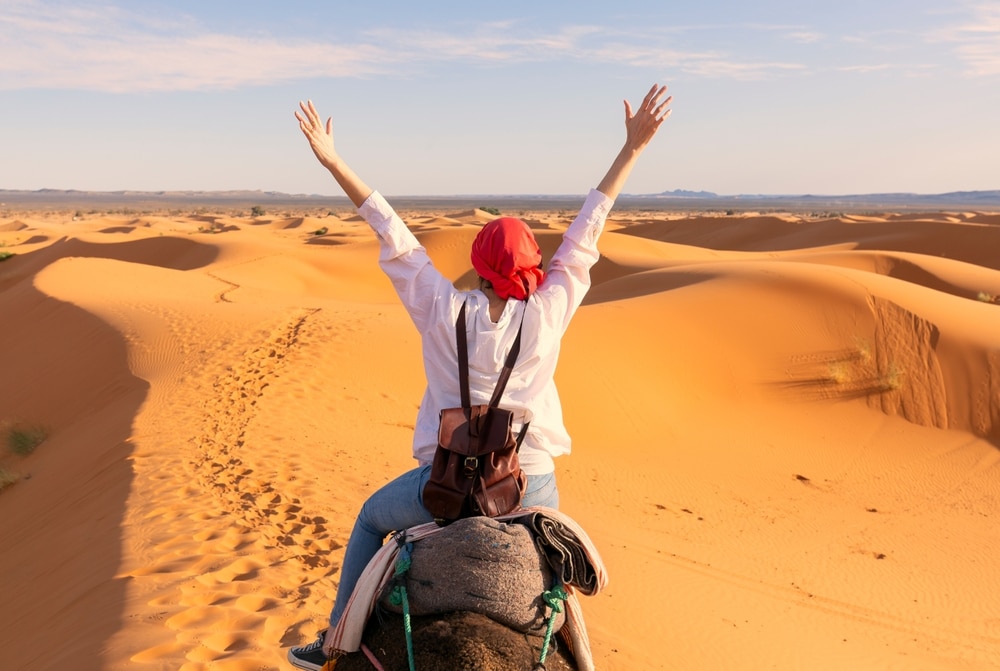A growing number of tourists are choosing stud farms, camping sites, and caravan parks in Rajasthan’s (India) deserts and villages as their preferred destinations for experiencing the state’s rich rural culture and lifestyle.
A total of 35 sites across Rajasthan offer a traditional experience to tourists, according to tourism officials. Rajasthan is not only about forts, palaces, and wildlife reserves, but there is a lot to see in its desert and villages.
As reported by Indian Express, Director of Tourism Rashmi Sharma stated that the initiative has received a positive response from both domestic and international visitors since its launch in November 2022.
Within a short period, 35 rural tourism units, including guesthouses, caravan parks, stud farms, and camping sites, have been registered and have started functioning. Sharma commented that these rural tourism units enable foreign guests to not only closely observe and understand Rajasthan’s rural life, but also immerse themselves in the rural lifestyle.
The initiative was started under the Rajasthan Rural Tourism Scheme, and implemented with the objective of increasing tourism prospects in rural areas and creating employment opportunities.
Sharma added that the scheme will also promote local artists as well as folk art and culture.
Sharma mentioned that the scheme allows the development of tourism units on existing land without conversion, providing direct benefits to villagers. Devipal Singh, owner of Dera Ashwa Farm near Nevta in Jaipur, stated that the farm offers activities such as horse riding and polo matches, in addition to lodging facilities. Guests are provided traditional food made with vegetables grown organically on the farm.
Through these experiences, tourists will get an opportunity to experience the rural life, culture, and traditions of the state, said Devipal Singh, who has 30 horses of different breeds on the farm. Rooms at the lodging facilities there are named after famous heroic horses like Chetak of Maharana Pratap and Krishna of Chhatrapati Shivaji. Another rural tourism unit is a heritage farm in Bagwada village in Amber tehsil of Jaipur.
Yogendra Singh Bagwada, who runs the Bagwada Heritage Resort, said a family from New Zealand stayed in the resort a few days back and experienced Rajasthan’s local culture. He explained that food is prepared in front of guests to provide an authentic rural experience. Yogendra Singh said the lac workers and potters of the village are famous, and they showcased their skills to the tourists.
Rural tourism units have been established in various districts, including Jaipur, Alwar, and Udaipur. Under this scheme, people in rural areas can host tourists at their homes. One to five rooms can be operated as homestays, and more than that as a guest house. The scheme emphasizes that these activities aim to provide tourists with an authentic rural experience.
The growth in popularity of rural tourism in Rajasthan can serve as an inspiration for the outdoor hospitality industry worldwide. Emphasizing authentic and immersive experiences within local communities and natural landscapes can attract discerning travelers seeking unique and sustainable travel options.
By supporting local economies, preserving cultural heritage, and promoting environmentally friendly practices, the industry can create a positive impact on both visitors and host communities. This trend highlights the importance of developing innovative tourism models that cater to evolving traveler preferences while prioritizing responsible and sustainable practices for long-term success in the outdoor hospitality sector.


